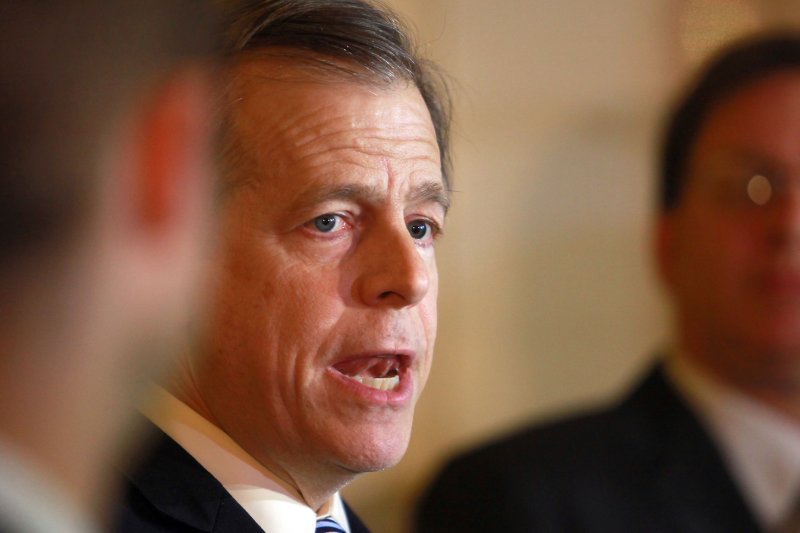U.S. Special Representative for North Korea Policy Ambassador Glyn Davies holds an impromptu press conference in a hotel lobby on arrival in Beijing. Davies said North Korea was balking on diplomacy in a recent meeting. UPI/Stephen Shaver |
License Photo
BEIJING, Nov. 22 (UPI) -- Glyn Davies, U.S. special envoy for North Korea policy, said the North Korea government wasn't making it easy to return to the nuclear negotiating table.
Davis met this week with Chinese officials in Beijing to discuss prospects for the resumption of multilateral talks about North Korea's nuclear weapons program.
"The problem we face ... is that North Korea is not making it at all easy to do that," he said during a press briefing Thursday.
China has been lobbying to bring its negotiating partners back to the table to ensure security on the Korean Peninsula.
Six-party talks between the two Koreas, China, the United States, Russia and Japan stalled in 2009. North Korea has conducted two nuclear tests since then.
Davis said he was frustrated with North Korea's so-called byungjin policy, which puts economic development and nuclear weapons development on equal footing.
"As far as we're concerned, byungjin is a dead-end for North Korea," he said. "They cannot hope to develop the prosperity that they seek for their people while at the same time investing tremendous resources in their nuclear program."
A U.S. State Department spokeswoman said in October "the ball is in [North Korea's] court" in terms of showing it's committed to multilateral negotiations.





